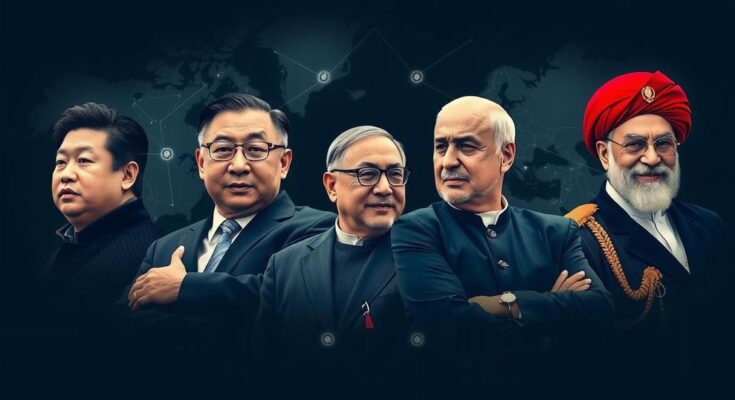U.S. officials express heightened concerns regarding the cooperation among China, Russia, North Korea, and Iran, referred to as a new ‘axis of evil.’ With mutual military support, particularly in relation to Russia’s conflict in Ukraine, these nations share technologies and expand their geopolitical influence, prompting calls for the U.S. to adopt a robust approach in response.
U.S. officials are increasingly wary of a burgeoning alliance among China, Russia, North Korea, and Iran, which some are dubbing a new “axis of evil.” This apprehension was notably amplified by U.S. Defense Secretary Lloyd Austin’s confirmation during his visit to Rome that North Korean troops have begun to arrive in Russia, presumably to assist in the efforts related to the conflict in Ukraine. Furthermore, Russia’s recent involvement in joint naval exercises with Iran underscores the strengthening ties among these nations. Each of these countries has supported Russia’s military undertakings in Ukraine. Iran has supplied missiles and drones, North Korea has contributed artillery shells, and China has provided critical dual-use technologies, including semiconductors and drone engine components. Republican Congressman Rob Wittman remarked on the historical parallels to the late 1930s, urging the contemporary world to respond similarly to the rise of these nations, which he claims fundamentally reject the principles of law and human dignity. Former President George W. Bush originally branded North Korea, Iran, and Iraq as members of the “axis of evil” in his 2002 State of the Union speech, a term that has now been expanded to encompass China, Russia, Iran, and North Korea due to their perceived collaboration. Secretary of State Antony Blinken described these countries as “revisionist powers” engaged in a fierce competition that could redefine international relations, emphasizing the need for a decisive response from the United States to avert any bloc confrontation. Wittman elaborated on the dangerous potential of this new axis, suggesting that their cooperative actions could be more destabilizing than those of Nazi Germany in 1939. He noted how these nations are sharing advancements in military capabilities, especially evident in the technologies utilized in the ongoing war in Ukraine. Merrill Matthews from the Institute for Policy Innovation highlighted that at least three of these countries are currently in expansionist modes, which indicates a coordinated effort to enhance their territorial and economic power. The partnership is reportedly working towards creating an independent economic zone that reduces reliance on Western economies. Chris Chivvis of the Carnegie Endowment for International Peace underscored China’s pivotal role in this coalition, suggesting that without China’s involvement, the concerns over these nations’ collaboration would significantly diminish. He envisaged scenarios where military engagements in one region could trigger opportunistic actions from others, affecting global geopolitical stability. Moreover, as emphasized by Michael Singh, the interdependencies among global energy suppliers and military capabilities of these countries complicate the potential outcomes of conflicts, revealing the interconnected nature of modern international relations. While Blinken characterized the relationships among these countries as “largely transactional,” he acknowledged the shared ambition to directly challenge U.S. hegemony, which will likely continue to underlie their interactions moving forward.
The article discusses the increase in concerns among U.S. officials regarding the alliance of China, Russia, North Korea, and Iran, which is being referred to by some as a new ‘axis of evil.’ The history of this term originates from President George W. Bush’s 2002 address, where he labeled certain countries as supporters of terrorism. The modern application refers to these four nations, which have been engaging in military and technological cooperation that threatens U.S. interests and international stability.
In conclusion, the potential alliance among China, Russia, North Korea, and Iran raises significant alarms for global security. Their collaborative efforts, particularly in military technology and political maneuvering, present a formidable challenge to the United States and its allies, necessitating a careful and strategic response to deter any threats posed by their actions.
Original Source: www.voanews.com




